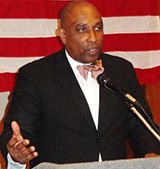
Ellis Washington
Happy Birthday Bach
By Ellis Washington
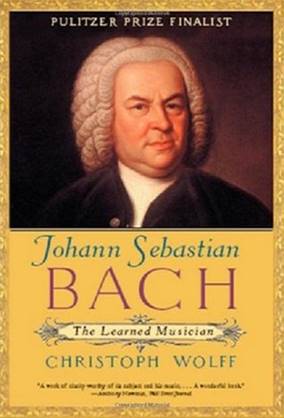
I had the honor of studying Bach's B Minor Mass with the celebrated Bach scholar,
Dr. Christoph Wolff at Harvard (1988-89)
"This is what I have to say about Bach – listen, play, love, revere – and keep your trap shut."
~ Einstein
Biography
331 years ago God gave the world Johann Sebastian Bach, born on March 21, 1685, in Eisenach, Thuringia, Germany. Bach descended from a large and eminent musical family going back centuries. His father, named Johann Ambrosius Bach, was a violinist and trumpeter, employed by the city of Eisenach. His uncles were church organists, composers and court musicians dating back to the patriarch, Viet Bach who in the late 1500s was the first Bach to migrate from Hungary to Thuringia, Germany to escape religious persecution against Lutherans (See The Bach Reader, David and Mendel, eds., pp. 203). Bach's mother and father died before was 10. As an orphan, he moved in with his eldest brother, J. C. Bach, an organist and composer, who initially was reluctant to teach his baby brother music yet when he discovered Bach was so determined to become a composer that he secretly studied counterpoint at night, he relented and taught his young brother organ music as well as the construction and maintenance of the organ.
From 1699-1701, Bach continued his formal education and at age of 14 he was awarded a scholarship to the celebrated St. Michael's School in Luneburg, near Hamburg, yet due to his limited economics famously walked on foot there almost 200 miles (300 kilometers). Possessing a pure, beautiful soprano voice, Bach sang a Capella at the boy's chorale. Bach's studies at the St. Michael's School were comprehensive and demanding. Besides his musical studies in harpsichord, organ, singing, young Bach also studied geography, theology, and history, including lessons in French, Latin, and Italian. Bach also studied music by the local German composers from the north and south (Buxtehude and Johann Pachelbel and Froberger being his chief influences). Bach also had significant experience with the music of other notable composers outside of Germany – the French composers Marchand, Marais and Jean-Baptiste Lully, and the Italians Arcangelo Corelli and Antonio Vivaldi (of whom he was especially fond of the music of Vivaldi). Bach mastered all of compositional styles of these composers by transcribing, arranging and even reconstructing their music, oftentimes for other instrumental combinations where he transcendent their music beyond its original conception, it now belongs to the Ages.
Bach was a very prolific composer and the system we use to number his works is called BWV or "Bach Werke-Verzeichnis" (Bach Works Catalogue) which number almost 1200 compositions! Some of Bach's most popular and enduring masterpieces include the following – Organ Works, Double Violin Concerto, Violin and Oboe Concerto, Saint Matthew Passion, Saint John Passion (especially this chorus), the Sanctus from the B Minor Mass, Chaconne from the Violin Partita in D minor, Brandenburg Concertos, Well-Tempered Klavier, even Bach's Opus 1 – Cantata for the Feast of the Annunciation (March 25), possesses all of the sublime genius we've come to love and revere of Bach's music.
Of course there are many, many more compositions by J.S. Bach that one can use not only for teaching, for listening pleasure, but to achieve the miraculous – to transforms one's character – to make you a better thinker, a more moral and profound person. Nevertheless, these representative pieces above will give you a good introduction to the music of Bach.
Who is the greatest classical composer in history?
Of course the answer to this question is a matter of subjective taste, yet why have certain composer's music transcended the Ages where we in modern times derive such listening pleasure, even inspiration, wisdom and knowledge from these Classical Masters? – Palestrina, Monteverdi, Vivaldi, Handel, Mozart, Beethoven, Brahms, Schubert, Schumann, Mendelssohn, Chopin, Bruckner, Wagner, Verdi, Mahler, Richard Strauss, Tchaikovsky, Stravinsky, Prokofiev, Shostakovich, Bartok, Debussy, Ravel – and many, many more Classical Masters, yet 331 years after his birth it is this singular genius from an obscure little town of Eisenach in central Germany whose transcendent music oeuvre that has moved humanity to aspire to reach our better Angels; to move closer to the God of all creation and creativity... Johann Sebastian Bach.
Human Nature and Transcendence
Bach has no equal in transcending the intellectual and philosophical, the emotional and psychological depth of the human condition – not even Shakespeare with his vast literary output cannot compare to what Bach did and we only have about two thirds of Bach's collected works because like with most geniuses throughout humanity, after his death in 1750, history moved from the Baroque Period to the Classical Age of secular Humanism where Bach's music soon fell out of favor, forgotten and where it remained discarded for nearly 100 years in boxes in the dark, damp basements of the German cathedrals he played in until the great German composer Felix Mendelson gave that legendary performance of Bach's Saint Mathew Passion in Leipzig (1829). In December 2007, I even wrote a Socratic dialogue on this historical fact originally titled, The Forgotten Genius.
Bach possessed a profound, intuitive understanding of human nature, together with his rhetorical abilities and his intrinsic proficiency as a musical dramatist are without peer. A faithful Lutheran, Bach lived by the credo he wrote at the end of many of his large scale works (SDG) – Soli Deo Gloria (To God alone be the glory), nevertheless Bach, being a child of the Enlightenment Age (1650-1800), more than most artists, had an innate understanding of Humanism and human nature – "of everything that it is to be human – to love, to lose, to laugh, to be betrayed, to betray, to be torn into little pieces or to feel so whole you could fly, is here. Conflict, friendship, despair, joy, his music encompasses what I can only describe as 'the everything-ness of everything'" according to an excellent BBC article by Clemency Burton-Hill.
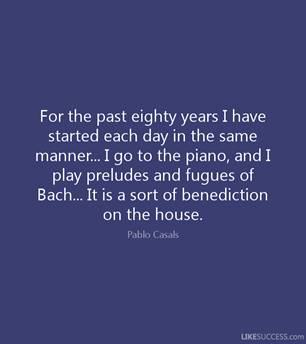
Allow me here to say what I believe is the singular offering of Bach's music to humanity according to John Eliot Gardiner, an outstanding Bach conductor and author of the marvelous recent biography Music In The Castle of Heaven. According to Burton-Hill, Gardiner also makes a persuasive analysis about Bach's transcendent qualities of his music and faith. Since when you listen to much of Bach's work one is experiencing an aesthetic so sublime, so spiritual that something that beautiful, Burton-Hill writes "it's hard not to wonder how it could have been made by a mere mortal."
My earlier point that Bach (and all the Classical Masters) had the miraculous ability to make us better human beings, more righteous people can be observed by the fact that "Gardiner is an agnostic, but admits to feeling close to becoming a Christian when performing Bach," writes Burton-Hill. "It's irresistible in its persuasiveness," he admits. "I cannot deny that even if my logical mind says 'no' – my soul, my spirit says, 'This can only have come from somebody who has a totally credible and believable sense of godhead and the futility of human existence; [these are] the aspirations that are necessary to make sense of our lives...'"
"Bach's music was made through faith, but it transcends faith. He humanises the Lutheran theology of his time and makes it approachable. He makes it speak to people of all beliefs, and of none. Gardiner reckons Bach's own tussles with faith, explored through the music, make his sacred pieces less didactic, less doctrinaire than others," according to Burton-Hill. Yet like with most of the world's great geniuses, there is an existential dualism with the Man. "Bach suffered devastating personal loss and his music, while occasionally saturated in grief, is somehow always immensely consoling. This is particularly true of his two hundred-odd cantatas, an astonishing suite of works that form the centre of his musical universe," according to Burton-Hill.
From my nativity as a child I was taught to revere the music of Bach where my mother (who studied and sang opera) played his music on the radio and by recordings. She sung Bach's music to me from the womb. I studied and revered Bach all of my life. As a professor, I often play Bach for my law and history students before class. I even raised my children to appreciate Bach and the other Classical Masters and often post Bach's music on my Facebook page to help my friends to reach higher heights and deeper depths in humanity, to use Bach's music to find God. There is something inherently good and right about starting your day off with the music of Bach. The two go hand and hand. As the great cellist and conductor Pablo Casals admonished humanity – "For the past 80 years I have started each day in the same manner... I go to the piano, and I play preludes and fugues of Bach... It's a sort of benediction on the house."
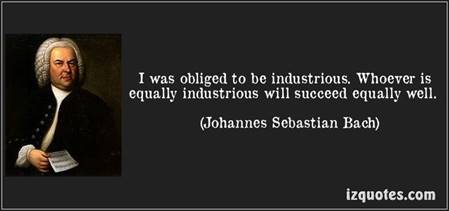
I am six weeks younger than President Barack Obama. I even attended Harvard Law School for a semester with him in 1988-89. At that time I was studying musicology (and later law) where I had the honor of studying Bach's B Minor Mass with the great Bach scholar Christoph Wolff who famously said about music and perhaps having Bach in mind, "Music is a mixed mathematical science that concerns the origins, attributes, and distinctions of sound, out of which a cultivated and lovely melody and harmony are made, so that God is honored and praised but mankind is moved to devotion, virtue, joy, and sorrow." Remember in Bach's biography above that he was orphaned by the age of 10, raised by a stern, often cruel elder brother who beat him if young Bach disobeyed his orders. Bach, a man who lost 11 of his 20 kids in infancy or childbirth, whose first wife and love of his life died unexpectedly, yet incessantly Bach composed day and night, relentless like a force of nature and maintained that stolid Protestant work ethic to his grave while watching other contemporary composers whose music is now long forgotten, yet in Bach's day they were celebrated while Bach's music in his later years was increasingly viewed as "old-fashion."
Bach and Dualism
We hear it in most of Bach's music an existential suffering, lachrymose leitmotiv which I believe reflected his own personal sufferings, his devastating childhood and professional traumas, yet within the lines of Bach's music there is always a triumphant expectation of the divine. In Bach's music we hear an incessant, almost obsessive striving for perfection, devotion to God through "musical offerings" and practicing the "Protestant work ethic" – the three primary techniques Bach used to master his craft of composing. Bach put these sublime sentiments in his own unremarkable, work-a-day language when he said, "I was obliged to be industrious. Whoever is equally industrious will succeed equally well."
Of course you cannot put into mere words the transcendent genius of the music by J.S. Bach and that was not my intent in writing this tribute essay, however physicist Albert Einstein comes the closest to capturing the intrinsic purpose and inspirational meaning of Bach when he said in his own sardonic manner – "This is what I have to say about Bach – listen, play, love, revere – and keep your trap shut."
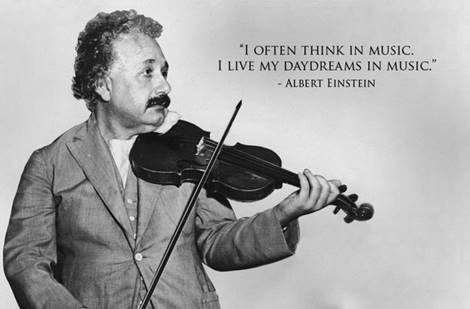
Book Notice
Please purchase my latest opus dedicated to that Conservative Colossus, Supreme Court Justice Clarence Thomas. Here are the latest two new volumes from my ongoing historical series – THE PROGRESSIVE REVOLUTION: History of Liberal Fascism through the Ages (University Press of America, 2015):
However, before the book is officially released to the public, I have to place 100 pre-publication orders (50 orders per each volume). I need your help to make this happen ASAP. Please place your order today for Volume 3 & Volume 4. Of course, if you can order all 100 copies today, the book will become official tomorrow.
Please circulate this flyer to all your email contacts & Facebook/Twitter followers who may be interested in purchasing this opus which will serve as a ready apologetic against the rampant Marxist-Progressive propaganda taught in America's public schools, colleges, universities, graduate schools, and law schools. Thanks in advance to all my friends, associates and colleagues for your invaluable support! Law and History Blog: www.EllisWashingtonReport.com
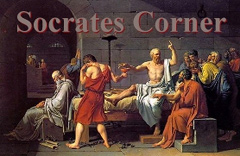 Invitation for manuscripts
Invitation for manuscripts
I am starting a new a program on my blog dedicated to giving young conservatives (ages 14-35) a regular place to display and publish their ideas called Socrates Corner. If you know of any young person who wants to publish their ideas on any subject, have them send their essay manuscripts to my email at ewashington@wnd.com.
© Ellis Washington
March 22, 2016

I had the honor of studying Bach's B Minor Mass with the celebrated Bach scholar,
Dr. Christoph Wolff at Harvard (1988-89)
"This is what I have to say about Bach – listen, play, love, revere – and keep your trap shut."
~ Einstein
Biography
331 years ago God gave the world Johann Sebastian Bach, born on March 21, 1685, in Eisenach, Thuringia, Germany. Bach descended from a large and eminent musical family going back centuries. His father, named Johann Ambrosius Bach, was a violinist and trumpeter, employed by the city of Eisenach. His uncles were church organists, composers and court musicians dating back to the patriarch, Viet Bach who in the late 1500s was the first Bach to migrate from Hungary to Thuringia, Germany to escape religious persecution against Lutherans (See The Bach Reader, David and Mendel, eds., pp. 203). Bach's mother and father died before was 10. As an orphan, he moved in with his eldest brother, J. C. Bach, an organist and composer, who initially was reluctant to teach his baby brother music yet when he discovered Bach was so determined to become a composer that he secretly studied counterpoint at night, he relented and taught his young brother organ music as well as the construction and maintenance of the organ.
From 1699-1701, Bach continued his formal education and at age of 14 he was awarded a scholarship to the celebrated St. Michael's School in Luneburg, near Hamburg, yet due to his limited economics famously walked on foot there almost 200 miles (300 kilometers). Possessing a pure, beautiful soprano voice, Bach sang a Capella at the boy's chorale. Bach's studies at the St. Michael's School were comprehensive and demanding. Besides his musical studies in harpsichord, organ, singing, young Bach also studied geography, theology, and history, including lessons in French, Latin, and Italian. Bach also studied music by the local German composers from the north and south (Buxtehude and Johann Pachelbel and Froberger being his chief influences). Bach also had significant experience with the music of other notable composers outside of Germany – the French composers Marchand, Marais and Jean-Baptiste Lully, and the Italians Arcangelo Corelli and Antonio Vivaldi (of whom he was especially fond of the music of Vivaldi). Bach mastered all of compositional styles of these composers by transcribing, arranging and even reconstructing their music, oftentimes for other instrumental combinations where he transcendent their music beyond its original conception, it now belongs to the Ages.
Bach was a very prolific composer and the system we use to number his works is called BWV or "Bach Werke-Verzeichnis" (Bach Works Catalogue) which number almost 1200 compositions! Some of Bach's most popular and enduring masterpieces include the following – Organ Works, Double Violin Concerto, Violin and Oboe Concerto, Saint Matthew Passion, Saint John Passion (especially this chorus), the Sanctus from the B Minor Mass, Chaconne from the Violin Partita in D minor, Brandenburg Concertos, Well-Tempered Klavier, even Bach's Opus 1 – Cantata for the Feast of the Annunciation (March 25), possesses all of the sublime genius we've come to love and revere of Bach's music.
Of course there are many, many more compositions by J.S. Bach that one can use not only for teaching, for listening pleasure, but to achieve the miraculous – to transforms one's character – to make you a better thinker, a more moral and profound person. Nevertheless, these representative pieces above will give you a good introduction to the music of Bach.
Who is the greatest classical composer in history?
Of course the answer to this question is a matter of subjective taste, yet why have certain composer's music transcended the Ages where we in modern times derive such listening pleasure, even inspiration, wisdom and knowledge from these Classical Masters? – Palestrina, Monteverdi, Vivaldi, Handel, Mozart, Beethoven, Brahms, Schubert, Schumann, Mendelssohn, Chopin, Bruckner, Wagner, Verdi, Mahler, Richard Strauss, Tchaikovsky, Stravinsky, Prokofiev, Shostakovich, Bartok, Debussy, Ravel – and many, many more Classical Masters, yet 331 years after his birth it is this singular genius from an obscure little town of Eisenach in central Germany whose transcendent music oeuvre that has moved humanity to aspire to reach our better Angels; to move closer to the God of all creation and creativity... Johann Sebastian Bach.
Human Nature and Transcendence
Bach has no equal in transcending the intellectual and philosophical, the emotional and psychological depth of the human condition – not even Shakespeare with his vast literary output cannot compare to what Bach did and we only have about two thirds of Bach's collected works because like with most geniuses throughout humanity, after his death in 1750, history moved from the Baroque Period to the Classical Age of secular Humanism where Bach's music soon fell out of favor, forgotten and where it remained discarded for nearly 100 years in boxes in the dark, damp basements of the German cathedrals he played in until the great German composer Felix Mendelson gave that legendary performance of Bach's Saint Mathew Passion in Leipzig (1829). In December 2007, I even wrote a Socratic dialogue on this historical fact originally titled, The Forgotten Genius.
Bach possessed a profound, intuitive understanding of human nature, together with his rhetorical abilities and his intrinsic proficiency as a musical dramatist are without peer. A faithful Lutheran, Bach lived by the credo he wrote at the end of many of his large scale works (SDG) – Soli Deo Gloria (To God alone be the glory), nevertheless Bach, being a child of the Enlightenment Age (1650-1800), more than most artists, had an innate understanding of Humanism and human nature – "of everything that it is to be human – to love, to lose, to laugh, to be betrayed, to betray, to be torn into little pieces or to feel so whole you could fly, is here. Conflict, friendship, despair, joy, his music encompasses what I can only describe as 'the everything-ness of everything'" according to an excellent BBC article by Clemency Burton-Hill.

Allow me here to say what I believe is the singular offering of Bach's music to humanity according to John Eliot Gardiner, an outstanding Bach conductor and author of the marvelous recent biography Music In The Castle of Heaven. According to Burton-Hill, Gardiner also makes a persuasive analysis about Bach's transcendent qualities of his music and faith. Since when you listen to much of Bach's work one is experiencing an aesthetic so sublime, so spiritual that something that beautiful, Burton-Hill writes "it's hard not to wonder how it could have been made by a mere mortal."
My earlier point that Bach (and all the Classical Masters) had the miraculous ability to make us better human beings, more righteous people can be observed by the fact that "Gardiner is an agnostic, but admits to feeling close to becoming a Christian when performing Bach," writes Burton-Hill. "It's irresistible in its persuasiveness," he admits. "I cannot deny that even if my logical mind says 'no' – my soul, my spirit says, 'This can only have come from somebody who has a totally credible and believable sense of godhead and the futility of human existence; [these are] the aspirations that are necessary to make sense of our lives...'"
"Bach's music was made through faith, but it transcends faith. He humanises the Lutheran theology of his time and makes it approachable. He makes it speak to people of all beliefs, and of none. Gardiner reckons Bach's own tussles with faith, explored through the music, make his sacred pieces less didactic, less doctrinaire than others," according to Burton-Hill. Yet like with most of the world's great geniuses, there is an existential dualism with the Man. "Bach suffered devastating personal loss and his music, while occasionally saturated in grief, is somehow always immensely consoling. This is particularly true of his two hundred-odd cantatas, an astonishing suite of works that form the centre of his musical universe," according to Burton-Hill.
From my nativity as a child I was taught to revere the music of Bach where my mother (who studied and sang opera) played his music on the radio and by recordings. She sung Bach's music to me from the womb. I studied and revered Bach all of my life. As a professor, I often play Bach for my law and history students before class. I even raised my children to appreciate Bach and the other Classical Masters and often post Bach's music on my Facebook page to help my friends to reach higher heights and deeper depths in humanity, to use Bach's music to find God. There is something inherently good and right about starting your day off with the music of Bach. The two go hand and hand. As the great cellist and conductor Pablo Casals admonished humanity – "For the past 80 years I have started each day in the same manner... I go to the piano, and I play preludes and fugues of Bach... It's a sort of benediction on the house."

I am six weeks younger than President Barack Obama. I even attended Harvard Law School for a semester with him in 1988-89. At that time I was studying musicology (and later law) where I had the honor of studying Bach's B Minor Mass with the great Bach scholar Christoph Wolff who famously said about music and perhaps having Bach in mind, "Music is a mixed mathematical science that concerns the origins, attributes, and distinctions of sound, out of which a cultivated and lovely melody and harmony are made, so that God is honored and praised but mankind is moved to devotion, virtue, joy, and sorrow." Remember in Bach's biography above that he was orphaned by the age of 10, raised by a stern, often cruel elder brother who beat him if young Bach disobeyed his orders. Bach, a man who lost 11 of his 20 kids in infancy or childbirth, whose first wife and love of his life died unexpectedly, yet incessantly Bach composed day and night, relentless like a force of nature and maintained that stolid Protestant work ethic to his grave while watching other contemporary composers whose music is now long forgotten, yet in Bach's day they were celebrated while Bach's music in his later years was increasingly viewed as "old-fashion."
Bach and Dualism
We hear it in most of Bach's music an existential suffering, lachrymose leitmotiv which I believe reflected his own personal sufferings, his devastating childhood and professional traumas, yet within the lines of Bach's music there is always a triumphant expectation of the divine. In Bach's music we hear an incessant, almost obsessive striving for perfection, devotion to God through "musical offerings" and practicing the "Protestant work ethic" – the three primary techniques Bach used to master his craft of composing. Bach put these sublime sentiments in his own unremarkable, work-a-day language when he said, "I was obliged to be industrious. Whoever is equally industrious will succeed equally well."
Of course you cannot put into mere words the transcendent genius of the music by J.S. Bach and that was not my intent in writing this tribute essay, however physicist Albert Einstein comes the closest to capturing the intrinsic purpose and inspirational meaning of Bach when he said in his own sardonic manner – "This is what I have to say about Bach – listen, play, love, revere – and keep your trap shut."

Book Notice
Please purchase my latest opus dedicated to that Conservative Colossus, Supreme Court Justice Clarence Thomas. Here are the latest two new volumes from my ongoing historical series – THE PROGRESSIVE REVOLUTION: History of Liberal Fascism through the Ages (University Press of America, 2015):
However, before the book is officially released to the public, I have to place 100 pre-publication orders (50 orders per each volume). I need your help to make this happen ASAP. Please place your order today for Volume 3 & Volume 4. Of course, if you can order all 100 copies today, the book will become official tomorrow.
Please circulate this flyer to all your email contacts & Facebook/Twitter followers who may be interested in purchasing this opus which will serve as a ready apologetic against the rampant Marxist-Progressive propaganda taught in America's public schools, colleges, universities, graduate schools, and law schools. Thanks in advance to all my friends, associates and colleagues for your invaluable support! Law and History Blog: www.EllisWashingtonReport.com
 Invitation for manuscripts
Invitation for manuscriptsI am starting a new a program on my blog dedicated to giving young conservatives (ages 14-35) a regular place to display and publish their ideas called Socrates Corner. If you know of any young person who wants to publish their ideas on any subject, have them send their essay manuscripts to my email at ewashington@wnd.com.
© Ellis Washington
The views expressed by RenewAmerica columnists are their own and do not necessarily reflect the position of RenewAmerica or its affiliates.
(See RenewAmerica's publishing standards.)




















